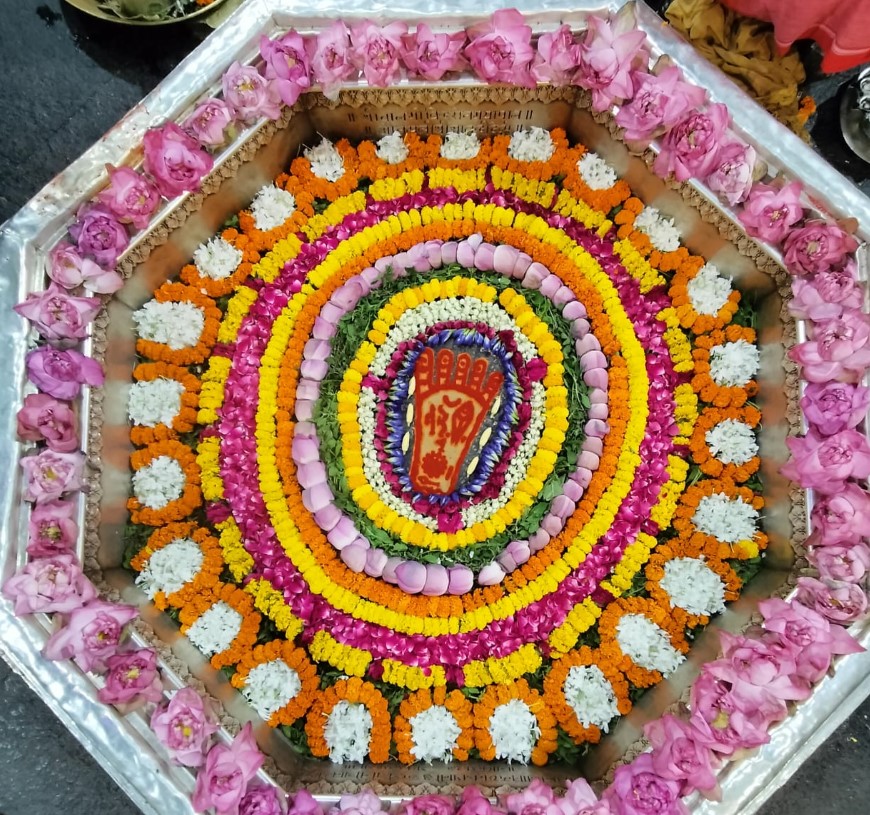Pind Daan in Gaya: Importance and Spiritual Benefits

Pind Daan, an ancient Hindu ritual performed in Gaya, Bihar, holds profound significance in the realm of spiritual practices and ancestral worship. This sacred tradition is believed to facilitate the journey of departed souls towards spiritual liberation and eternal peace. Let’s explore the rich tapestry of its importance, spiritual benefits, rituals, cultural significance, and the enduring legacy that makes Pind Daan in Gaya a revered pilgrimage destination for devotees.
Historical and Mythological Significance
Pind Daan finds its roots in Hindu mythology and scriptures, where it is mentioned as a crucial rite for honoring and appeasing ancestors (pitrus). According to legend, Lord Rama performed Pind Daan at Gaya to seek blessings for his father, King Dasharatha. This act is believed to have sanctified Gaya as a sacred site where the power of performing Pind Daan is said to reach the ancestors directly, helping them attain moksha (liberation from the cycle of rebirth).
Importance of Gaya for Pind Daan
Gaya is revered as one of the most auspicious places for conducting Pind Daan rituals. It is believed that performing Pind Daan in Gaya carries immense spiritual merit and ensures the spiritual upliftment of departed souls. The sacred river Phalgu (Falgu), flowing through Gaya, is said to enhance the sanctity of the rituals, making it an ideal place for honoring ancestors and seeking their blessings.
Spiritual Benefits of Pind Daan
The primary spiritual benefit of Pind Daan is believed to be the liberation (moksha) of departed ancestors. It is believed that by offering pinds (rice balls) and performing rituals with devotion and sincerity, one can mitigate the sufferings of ancestors in the afterlife and facilitate their journey towards higher realms of existence. Pind Daan is also considered beneficial for the living, as it is believed to bring peace and blessings from ancestors, leading to prosperity and well-being in family life.
Rituals and Practices
The rituals of Pind Daan are performed with meticulous attention to detail and adherence to traditional customs. Devotees gather at designated sites in Gaya, guided by priests (pandas) who oversee the ceremony. Offerings of pinds, water, sesame seeds, and other symbolic items are made while chanting sacred hymns and mantras. The rituals are conducted according to the lunar calendar and specific auspicious timings, ensuring the efficacy and potency of the offerings.
Cultural Significance and Community Engagement
Beyond its religious implications, Pind Daan fosters cultural continuity and community cohesion. Families often travel together to Gaya to perform Pind Daan, strengthening familial bonds and honoring ancestral lineage. The ritual also serves as an opportunity for collective reflection on the cycle of life and death, reinforcing the values of gratitude, respect, and spiritual interconnectedness within the community.
Impact on Personal and Collective Karma
Performing Pind Daan is believed to purify one’s karma (actions) and accelerate spiritual evolution. By fulfilling ancestral duties with sincerity and devotion, individuals can alleviate karmic debts and pave the way for positive transformations in their lives. The act of giving and honoring ancestors is considered a sacred duty that aligns individuals with their moral and ethical responsibilities towards family and society.
Visiting Gaya for Pind Daan: Practical Tips and Advice
For pilgrims planning a visit to Gaya for Pind Daan, it is advisable to consult with experienced priests or local guides who can provide insights into rituals and customs. Understanding the significance of each ritual step enhances the spiritual experience and ensures proper conduct. Gaya offers a range of accommodations to suit various budgets, along with local cuisine that enriches the cultural journey of pilgrimage.
Conclusion
In conclusion, Pind Daan in Gaya epitomizes the timeless tradition of honoring ancestors and seeking their blessings for spiritual upliftment. Its historical roots, spiritual benefits, and cultural resonance make it an indispensable pilgrimage for Hindus worldwide. Whether performed for personal spiritual growth or to fulfill familial obligations, Pind Daan embodies the enduring values of reverence, gratitude, and continuity in honoring the departed souls.
